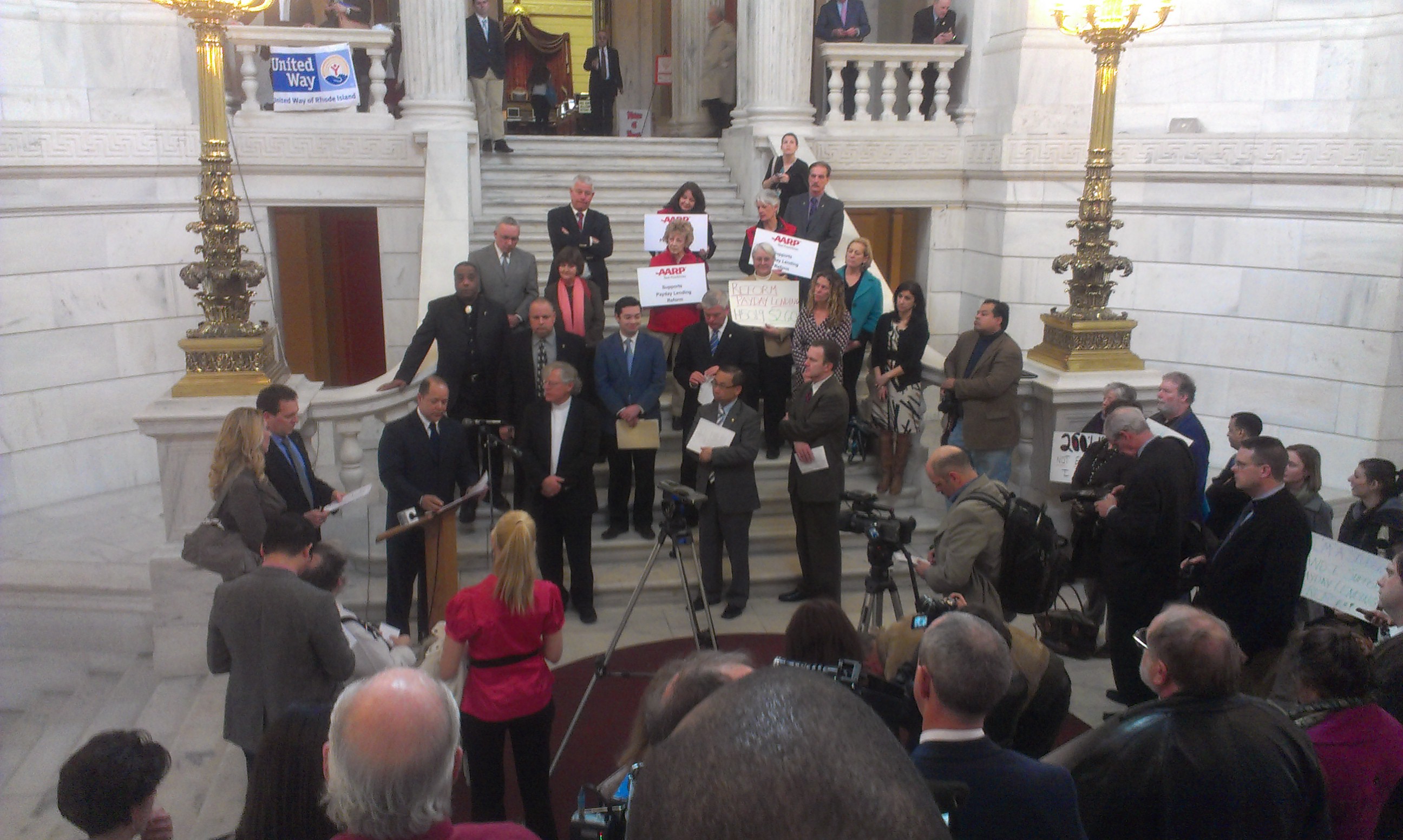First, a disclosure: As part of a class I’m taking, I’m involved with Rhode Island Payday Lending Reform, the coalition whose cause I discuss below.
Payday loans are a way for people who need cash, and don’t have access to traditional banking resources, to get a loan quickly. Usually, a borrower will bring in a paystub, and receive a short-term cash loan that is supposed to be repaid by the borrower’s next payday. Interest rates on these loans are usually extraordinarily high. In Rhode Island, the maximum interest rate is 260%.

Last week, members of the RI Payday Lending Reform coalition held a press conference in the State House to advocate for legislation currently in the RI House and Senate that would cap interest rates for these loans at 36%. The coalition includes local advocates, nonprofits, religious groups, and politicians.
The problem with payday loans is that they often become debt traps. The coalition notes that the typical payday borrower has 9 payday transactions per year. The industry relies on extracting all the money it can from a small group of people who have no choice but to turn to payday lending.
A 36% cap has precedent, both historical and contemporary. RI used to cap payday loans at 36%, until a special exemption passed in 2001 removed the cap. Seventeen states, DC, and the military all cap payday loans at or around this amount.
Four mayors spoke at the event, and three were Republicans, demonstrating that this is a bipartisan issue. Seventy percent of the public supports a rate cap of 36% or lower.
The libertarian argument against a 36% cap is simple (as libertarian arguments often are): As long as borrowers are aware of the interest rates and fees, entering into these loans is a free choice, and borrowers bear the responsibility of their choice.
On its face, this argument is powerful. But when contemplating government action, I think it’s worth asking a few simple questions. Is the group in question vulnerable? Payday borrowers are low-income households without other financial resources, so the answer is yes. Is there a failure of the free market that needs correction? Traditional lending is based on the idea that borrowers will have the ability to pay back the loan. This is not the case for payday lenders, who rely on debt traps to continue to receive revenue.
There are some arguments in favor of payday loans, including that they give access to credit for households without the collateral to receive traditional credit. But remember that these bills do not ban payday lending, but merely bring maximum interest rates in line with national standards.
Payday reform also demonstrates a fact of modern politics: lobbying works, and it’s usually well-financed interests that have lobbyists. One payday lender, Advance America, employs several lobbyists in RI. Two of the lobbyists, as is often the case, are former elected officials: former House Speaker William Murphy and former state representative R. Kevin Horan. Their efforts help explain why this popular bill has failed to pass for the past several years.
At the risk of being flippant, I’ll admit that capitalism is messy and necessitates the creation of winners and losers. Any intervention in the free market should be considered carefully. But some market failures demand public policy solutions, and payday lending in RI is one such issue.
A hearing on the payday lending reform bill is scheduled for April 2nd. The RI Payday Lending Reform website includes more resources about the payday reform issue, and also offers citizens to chance to sign a petition to voice their support for lending reform.
